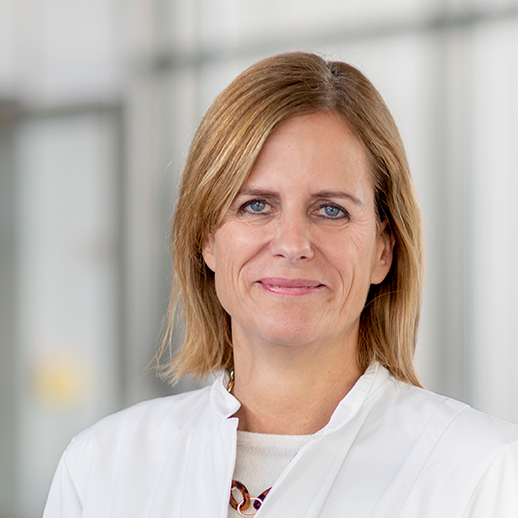Here you can find detailed profiles of DKTK faculty members with programm specification and research focus in the Researcher Database. Find contacts of all DKTK scientists at the DKTK intranet
Researcher Database

Prof. Dr. Katharina Götze
TUM Klinikum Rechts der Isar
Ismaninger Str. 22
81675 München
Program
Exploitation of Oncogenic Mechanisms (EOM)
Summary
Katharina Götze is deputy clinical director at the Klinik und Poliklinik für Innere Medizin III, Hämatologie und Onkologie des Klinikums rechts der Isar.
Her research group on Hematopoeitic Stem Cells and Microenvironment is focused on studying leukemic stem cells in acute myeloid leukemia (AML) and myelodysplastic syndromes (MDS). In particular, they are interested in the interaction between leukemic stem cells and their microenvironment (niche) in the bone marrow to identify and target critical pathways directing clonal evolution and enabling survival of leukemic stem cells through interaction with the stem cell niche.
Current projects have an emphasis on epigenetic changes in the bone marrow microenvironment during clonal evolution in MDS and AML and involve use of transgenic and transplantation mouse models as well as primary human bone marrow samples.
Further information is provided at:
https://med3.mri.tum.de/de/hematopoeitic-stem-cells-and-microenvironment